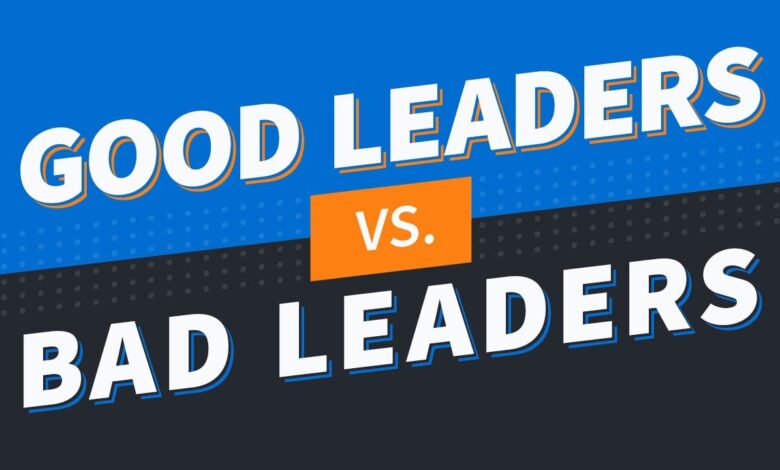
The Best Leaders Are Imperfect: Embracing Flaws for Success
The best leaders are imperfect. This might sound counterintuitive, but it’s the truth. In a world that often celebrates perfection, it’s refreshing to acknowledge that the most effective leaders are those who embrace their flaws. These imperfections, far from being weaknesses, actually contribute to their strength and effectiveness.
They make them relatable, foster empathy, and ultimately, inspire those around them to strive for greatness.
This isn’t about glorifying mistakes. It’s about understanding how acknowledging our limitations can lead to greater self-awareness, humility, and ultimately, better leadership. This article will explore the multifaceted nature of imperfection in leadership, highlighting how embracing our flaws can pave the way for genuine connection, trust, and positive change.
The Nature of Imperfection
Perfection is a myth, a mirage that often leads to disappointment and disillusionment. The truth is, we are all flawed, leaders included. Embracing our imperfections is not a sign of weakness, but a testament to our humanity. In fact, acknowledging our shortcomings can be a powerful tool for building stronger, more authentic leadership.
Imperfections Make Leaders Relatable and Human
Leaders who admit to their mistakes, show vulnerability, and demonstrate a willingness to learn from their experiences create a more human connection with their followers. This relatability fosters trust and respect, as people feel seen and understood. It is through these shared imperfections that leaders can build genuine relationships and inspire loyalty.
Imperfections Can Foster Empathy and Understanding in Leadership
When leaders acknowledge their own struggles, they create a safe space for others to do the same. This can lead to a more empathetic and understanding work environment, where people feel comfortable sharing their vulnerabilities and seeking support. By recognizing and addressing the common ground of imperfection, leaders can build a culture of open communication and collaboration.
Examples of Historical Leaders Known for Their Flaws
- Abraham Lincoln, the 16th President of the United States, was known for his bouts of depression and melancholy. However, his ability to connect with the common man and his unwavering commitment to the Union despite the challenges he faced, solidified his legacy as a great leader.
- Winston Churchill, the Prime Minister of the United Kingdom during World War II, was often described as a difficult and demanding leader. Despite his flaws, his unwavering determination and inspirational speeches during a time of great crisis earned him the respect and admiration of the British people.
- Martin Luther King Jr., the civil rights leader, was not without his imperfections. He struggled with personal relationships and faced criticism for his methods. However, his unwavering commitment to equality and justice, his powerful speeches, and his willingness to fight for what he believed in, made him a true leader who inspired millions.
The Benefits of Imperfection in Leadership
In a world that often celebrates perfection, it’s refreshing to acknowledge that the best leaders are not flawless. In fact, their imperfections are often what make them great. By embracing their vulnerabilities and acknowledging their mistakes, these leaders build trust, inspire innovation, and create a more human and relatable leadership style.
Admitting Mistakes Builds Trust and Credibility
Admitting mistakes is a powerful act of vulnerability that can significantly enhance trust and credibility. When leaders acknowledge their errors, they demonstrate humility, honesty, and a willingness to learn. This transparency fosters a sense of authenticity and allows followers to relate to them on a deeper level.
“The greatest leaders are not afraid to admit their mistakes. They use their mistakes as learning opportunities to grow and improve.”
Unknown
- Increased Transparency:Leaders who admit their mistakes create a culture of transparency, where everyone feels comfortable being open and honest about their own shortcomings. This open communication fosters a more collaborative and supportive environment.
- Enhanced Trust:By acknowledging their mistakes, leaders demonstrate that they are not infallible and that they value honesty. This builds trust among followers, who are more likely to believe in a leader who is willing to admit their flaws.
- Improved Decision-Making:When leaders are comfortable admitting mistakes, they are more likely to consider diverse perspectives and challenge their own assumptions. This can lead to better decision-making and a more innovative approach to problem-solving.
The Importance of Vulnerability in Leadership
Vulnerability is often seen as a weakness, but in leadership, it can be a powerful strength. Vulnerable leaders are those who are willing to show their emotions, admit their mistakes, and ask for help when they need it. This authenticity allows them to connect with their followers on a deeper level and build stronger relationships.
“Vulnerability is not weakness. It is the opposite. It is our greatest measure of courage.”
The best leaders are imperfect, and sometimes that means making tough decisions. If you’re feeling burnt out from job sharing, it’s okay to acknowledge that and take steps to find a solution that works better for you. Check out this article on Ask Weareteachers for some helpful advice on navigating this tricky situation.
Remember, even the most effective leaders are constantly learning and adapting to new challenges.
Brené Brown
- Improved Communication:Vulnerable leaders are more likely to listen to their followers and be open to feedback. They create a more open and honest communication environment where everyone feels comfortable sharing their ideas and concerns.
- Stronger Relationships:By being vulnerable, leaders demonstrate that they are human and relatable. This allows them to build stronger relationships with their followers based on mutual respect and understanding.
- Increased Creativity:Vulnerability can foster a more creative and innovative environment. When leaders are willing to admit their limitations, they encourage their followers to step up and offer new ideas and solutions.
Imperfection as a Catalyst for Innovation and Learning
Instead of viewing imperfection as a setback, leaders can embrace it as an opportunity for growth and innovation. By acknowledging their mistakes and learning from them, they can constantly improve their skills and approaches.
“The only way to do great work is to love what you do. If you haven’t found it yet, keep looking. Don’t settle.”
Steve Jobs
- Experimentation and Risk-Taking:Imperfection encourages experimentation and risk-taking. Leaders who are not afraid to make mistakes are more likely to try new things and push boundaries, leading to innovation and progress.
- Continuous Learning:By embracing imperfection, leaders create a culture of continuous learning. They encourage their followers to learn from their mistakes and use them as opportunities to improve their skills and knowledge.
- Resilience and Adaptability:Leaders who are comfortable with imperfection are more resilient and adaptable. They are able to bounce back from setbacks and adjust their strategies as needed, leading to greater success in the long run.
The Role of Humility in Imperfect Leadership
Humility is not a sign of weakness but a strength that allows leaders to acknowledge their limitations, embrace feedback, and learn from their mistakes. It is an essential component of effective leadership, particularly in the context of imperfection.
Humility and Acknowledging Limitations
Humility empowers leaders to recognize that they don’t have all the answers and that they can learn from others. By acknowledging their limitations, leaders can create an environment where others feel comfortable offering their insights and perspectives. This openness to different viewpoints is crucial for making informed decisions and fostering innovation.
Humility and Effective Decision-Making
Humility plays a vital role in effective decision-making. When leaders are humble, they are more likely to:
- Seek out diverse perspectives before making decisions.
- Consider the potential consequences of their actions.
- Be open to changing their minds based on new information.
This approach to decision-making reduces the risk of making impulsive or biased decisions, leading to better outcomes for the organization.
Humility and Collaboration
Humility fosters collaboration and teamwork by creating a culture of respect and trust. When leaders are humble, they are more likely to:
- Give credit to their team members for their contributions.
- Value the input of others, even if it differs from their own.
- Be willing to learn from their mistakes and share those lessons with their team.
This creates a positive and supportive work environment where everyone feels valued and empowered to contribute their best.
The Importance of Self-Awareness
Self-awareness is a crucial aspect of effective leadership. It enables leaders to understand their strengths, weaknesses, values, and motivations, allowing them to lead with greater authenticity and effectiveness.
Understanding Strengths and Weaknesses
Self-awareness helps leaders identify their strengths and weaknesses. Leaders who are aware of their strengths can leverage them to their advantage, while also recognizing their limitations. For example, a leader who excels at communication might focus on delegating tasks that require technical expertise, while taking the lead in team meetings and presentations.
Recognizing weaknesses allows leaders to seek support from others, develop their skills, or delegate tasks that require expertise they lack.
Informed Decision-Making
Self-awareness contributes to informed decision-making. Leaders who understand their biases, values, and emotional triggers can make more objective and rational decisions. They are less likely to be swayed by personal preferences or emotional impulses, leading to more balanced and strategic choices.
For example, a leader who is aware of their tendency to be overly cautious might consciously seek out diverse perspectives and challenge their assumptions before making a decision.
Personal Growth and Development, The best leaders are imperfect
Self-awareness is essential for personal growth and development. Leaders who are self-aware are better equipped to identify areas for improvement and seek out opportunities for learning and development. They can set realistic goals, develop new skills, and cultivate a growth mindset.
We all make mistakes, and even the best leaders are imperfect. It’s how we learn and grow. But some mistakes have far-reaching consequences, like the ones made by Alex Jones, whose claims about the Sandy Hook shooting were proven false.
The recent alex jones damages trial begins over his false claims sandy hook shooting was a hoax highlights the importance of accountability and the devastating impact of spreading misinformation. It’s a reminder that even the most influential voices can be held responsible for their actions, and that true leadership involves owning up to our mistakes and striving to do better.
For example, a leader who recognizes their lack of patience might enroll in a course on conflict resolution or seek mentorship from a leader known for their calm demeanor.
The Impact of Imperfect Leaders on Others: The Best Leaders Are Imperfect
The impact of imperfect leaders extends beyond their own personal growth and development. They serve as powerful role models, influencing the behavior and attitudes of those around them. By embracing their flaws, imperfect leaders create an environment where others feel empowered to do the same, fostering a culture of acceptance and resilience.
The best leaders are imperfect, and that’s okay. In fact, it’s their flaws that often make them relatable and inspire trust. Take a look at the current political landscape, for example, where a recent analysis to hobble Putin accelerate the brain drain highlights the consequences of a leader’s rigid approach.
This highlights how even the most powerful leaders can be hampered by their weaknesses, proving that imperfections can be a source of strength.
Inspiring Others to Embrace Their Flaws
Imperfect leaders demonstrate that vulnerability is not a weakness but a strength. They encourage others to acknowledge their shortcomings and learn from them, fostering a culture of continuous improvement. By being open about their own mistakes, imperfect leaders create a safe space for others to do the same, promoting honesty, transparency, and self-reflection.
“The greatest glory in living lies not in never falling, but in rising every time we fall.”
Nelson Mandela
Creating a More Inclusive and Accepting Environment
Imperfect leaders understand that everyone makes mistakes and that perfection is an unattainable ideal. They create a workplace where diversity is valued and celebrated, fostering a sense of belonging and inclusion. This inclusivity allows individuals to feel comfortable being themselves, contributing their unique perspectives and talents.
“The best leaders are the ones who are willing to admit their mistakes.”John C. Maxwell
Motivating Others to Strive for Greatness
Imperfect leaders inspire others to reach their full potential by demonstrating that growth comes from embracing challenges and learning from failures. They set an example by striving for excellence while acknowledging their own limitations. This approach fosters a culture of continuous learning and improvement, encouraging individuals to push their boundaries and strive for greatness.
“The only way to do great work is to love what you do.”
Steve Jobs
Overcoming Challenges of Imperfection

Embracing imperfection is essential for effective leadership, but it’s also important to develop strategies for managing the impact of personal flaws and fostering continuous improvement. By acknowledging our limitations, we can create a path for growth and development, leading to stronger and more resilient leadership.
Managing the Impact of Personal Flaws
Understanding our weaknesses is the first step in managing their impact. Identifying these flaws allows us to develop strategies for minimizing their negative effects. Here are some approaches:
- Self-Awareness:Through introspection, feedback, and observation, we can gain a deeper understanding of our strengths and weaknesses. This awareness enables us to recognize situations where our flaws might hinder our effectiveness and to proactively take steps to mitigate their impact.
For example, a leader who recognizes their tendency to be overly critical might make a conscious effort to provide constructive feedback in a more positive and encouraging manner.
- Compensation Strategies:We can develop strategies to compensate for our weaknesses. For example, a leader who struggles with public speaking might choose to delegate presentations or invest in training to improve their communication skills. By actively seeking solutions, we can minimize the negative impact of our flaws.
- Building Support Systems:Surrounding ourselves with trusted individuals who can provide constructive feedback and support can help us manage our flaws. A strong network of mentors, colleagues, and friends can offer valuable insights and encouragement, enabling us to overcome challenges and develop as leaders.
Using Feedback to Learn and Improve
Feedback is a powerful tool for growth and development. By actively seeking and incorporating feedback from others, we can gain valuable insights into our strengths and weaknesses, enabling us to make necessary adjustments and improve our leadership effectiveness.
- Openness to Feedback:It’s essential to cultivate an open mindset and welcome feedback, regardless of whether it’s positive or negative. This requires a willingness to listen, reflect, and consider different perspectives. Leaders who are open to feedback demonstrate humility and a commitment to continuous improvement.
- Constructive Dialogue:Feedback should be a two-way street. Engage in constructive dialogue with those providing feedback, asking clarifying questions and expressing your understanding of their perspectives. This fosters a collaborative learning environment and encourages open communication.
- Actionable Feedback:Effective feedback should be actionable. Focus on specific areas for improvement and develop concrete steps to address those areas. For example, if a leader receives feedback on their communication style, they might commit to attending a communication workshop or seeking coaching to improve their skills.
Building Resilience and Overcoming Setbacks
Resilience is the ability to bounce back from adversity and setbacks. Leaders who are resilient can overcome challenges, learn from their mistakes, and continue to strive for success. Here are some strategies for building resilience:
- Mindset Shift:View setbacks as opportunities for growth and learning. Instead of dwelling on failures, focus on the lessons learned and how to apply those lessons to future situations. A positive mindset can help us maintain motivation and persevere through challenges.
- Stress Management:Stress can hinder our ability to cope with setbacks. Develop healthy coping mechanisms for managing stress, such as exercise, meditation, or spending time in nature. Prioritizing self-care can enhance our resilience and enable us to navigate challenges more effectively.
- Support Networks:Surround yourself with a strong support network of family, friends, mentors, and colleagues. These individuals can provide encouragement, guidance, and a sense of belonging, helping us to navigate difficult times and maintain our sense of purpose.
Epilogue
In the end, the best leaders are not those who are flawless, but those who are willing to be vulnerable, learn from their mistakes, and inspire others to do the same. By embracing imperfection, we create a more authentic and inclusive environment where everyone feels empowered to contribute their unique strengths, flaws and all.
So, let’s celebrate the imperfections that make us human, and let them fuel our journey to becoming better leaders, together.






